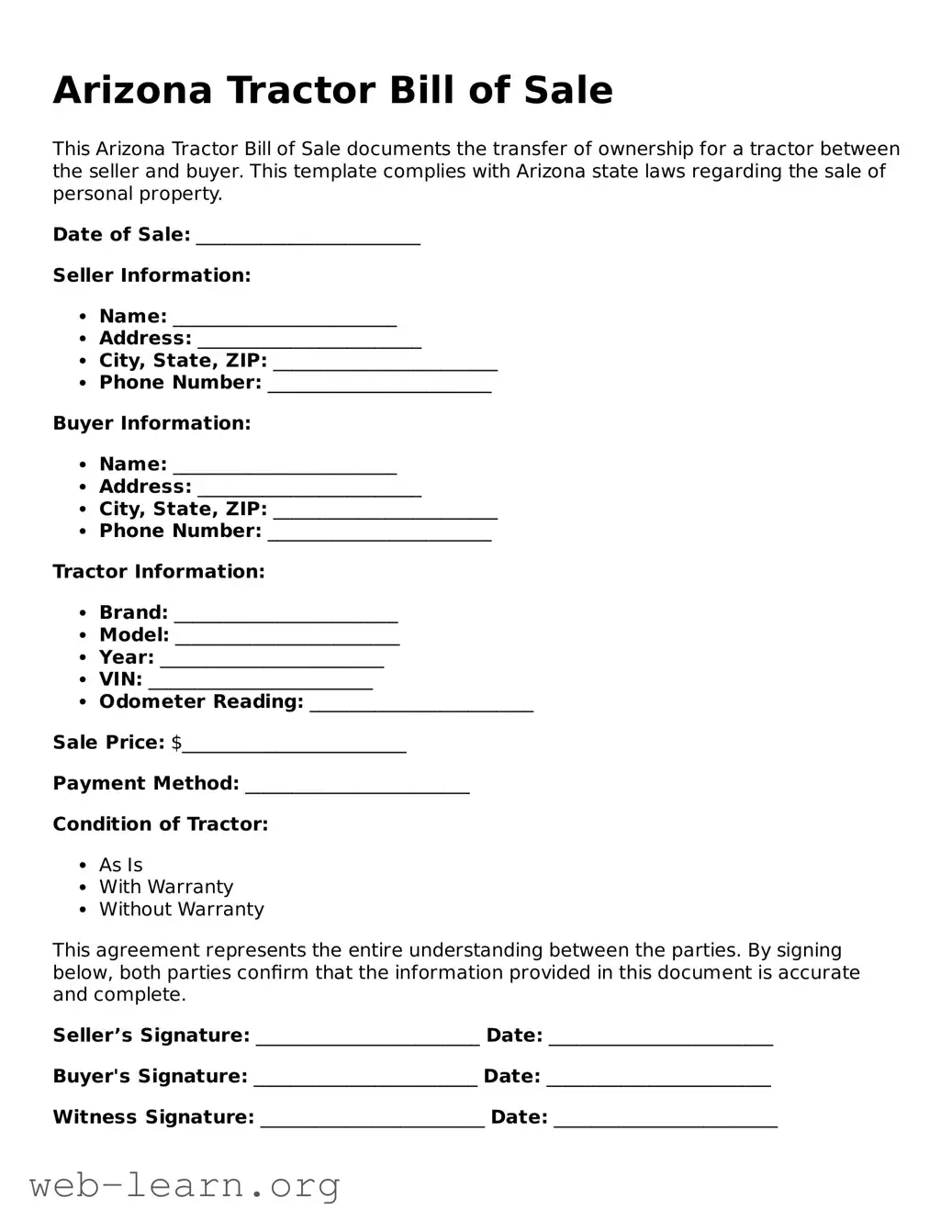Arizona Tractor Bill of Sale
This Arizona Tractor Bill of Sale documents the transfer of ownership for a tractor between the seller and buyer. This template complies with Arizona state laws regarding the sale of personal property.
Date of Sale: ________________________
Seller Information:
- Name: ________________________
- Address: ________________________
- City, State, ZIP: ________________________
- Phone Number: ________________________
Buyer Information:
- Name: ________________________
- Address: ________________________
- City, State, ZIP: ________________________
- Phone Number: ________________________
Tractor Information:
- Brand: ________________________
- Model: ________________________
- Year: ________________________
- VIN: ________________________
- Odometer Reading: ________________________
Sale Price: $________________________
Payment Method: ________________________
Condition of Tractor:
- As Is
- With Warranty
- Without Warranty
This agreement represents the entire understanding between the parties. By signing below, both parties confirm that the information provided in this document is accurate and complete.
Seller’s Signature: ________________________ Date: ________________________
Buyer's Signature: ________________________ Date: ________________________
Witness Signature: ________________________ Date: ________________________
